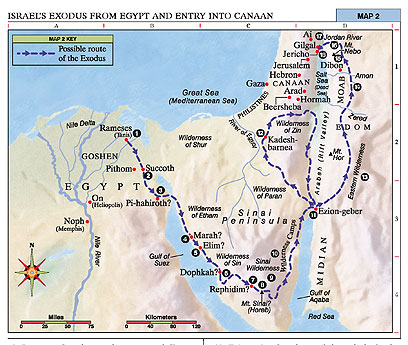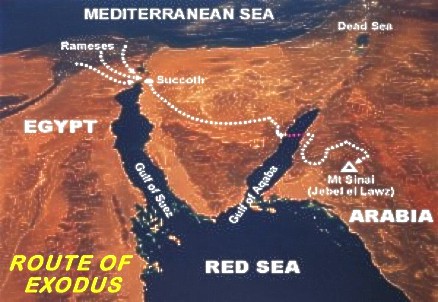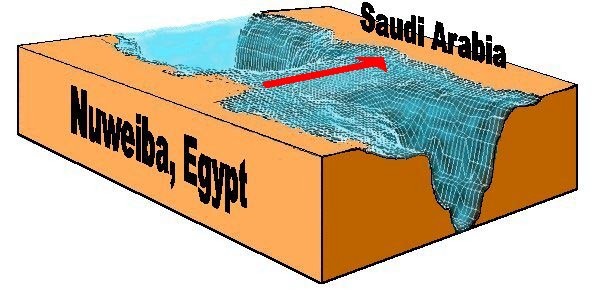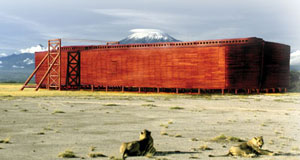Sons and Heirs

1 I mean that the heir, as long as he is a child, is no different from a slave, though he is the owner of everything, 2 but he is under guardians and managers until the date set by his father. 3 In the same way we also, when we were children, were enslaved to the elementary principles of the world. 4 But when the fullness of time had come, God sent forth his Son, born of woman, born under the law, 5 to redeem those who were under the law, so that we might receive adoption as sons. 6 And because you are sons, God has sent the Spirit of his Son into our hearts, crying, “Abba! Father!” 7 So you are no longer a slave, but a son, and if a son, then an heir through God.
.
1. Is Paul now changing the subject?
No. Paul is continuing to drive home his point that the law was a temporary situation and had served its purpose.In the previous chapter he had shown them that believers in the gospel were the true children of Abraham; that they had been delivered from the curse of the law; that the law was a schoolmaster to lead them to Christ, and that they were all the children of God. BN
So then, the law was our guardian until Christ came, in order that we might be justified by faith Gal 3:24 (ESV)
.
2. The slave analogy illustrates what principle?
The slave as well as the child has restricted freedom. In respect to ability to make decisions both groups are identical in that they both are under the authority of their managers.

Again we will have to go back to the Roman customs to see Paul’s illustration in action. In a Roman home servants had charge of different possessions of the master. Some had charge of the chattels, others of the livestock, others kept books for him, and others had charge of his children. When a little one was born into the home, the servants cared for him and dressed him in play clothes so that he didn’t look any different from the children of the servants with whom he was playing. And he had to obey the servants just like the other children did. JVM
.
3. What does Paul point to as the major factor in bringing us out of slavery to the law?
Redemption and the indwelling Holy Spirit. The blood of Christ paid the price to buy us back out of bondage to the law. The Holy Spirit in us guarantees out position.
You were bought with a price; do not become slaves of men. 1 Cor 7:23 (ESV)

And I will ask the Father, and he will give you another Helper, to be with you forever, 17 even the Spirit of truth, whom the world cannot receive, because it neither sees him nor knows him. You know him, for he dwells with you and will be in you. John 14:16-17 (ESV)
When you believed, you were marked in him with a seal, the promised Holy Spirit, 14 who is a deposit guaranteeing our inheritance until the redemption of those who are God’s possession—to the praise of his glory. Eph. 1:13-14
.
Paul’s Concern for the Galatians

8 Formerly, when you did not know God, you were enslaved to those that by nature are not gods. 9 But now that you have come to know God, or rather to be known by God, how can you turn back again to the weak and worthless elementary principles of the world, whose slaves you want to be once more? 10 You observe days and months and seasons and years! 11 I am afraid I may have labored over you in vain. 12 Brothers, I entreat you, become as I am, for I also have become as you are. You did me no wrong. 13 You know it was because of a bodily ailment that I preached the gospel to you at first, 14 and though my condition was a trial to you, you did not scorn or despise me, but received me as an angel of God, as Christ Jesus. 15 What then has become of the blessing you felt? For I testify to you that, if possible, you would have gouged out your eyes and given them to me. 16 Have I then become your enemy by telling you the truth? 17 They make much of you, but for no good purpose. They want to shut you out, that you may make much of them. 18 It is always good to be made much of for a good purpose, and not only when I am present with you, 19 my little children, for whom I am again in the anguish of childbirth until Christ is formed in you! 20 I wish I could be present with you now and change my tone, for I am perplexed about you.
.
4. What is so puzzling to Paul?

“how can you turn back?” Why would you want to go back to being enslaved by a worthless system which can never bring life? What is the motivation for me to want to go back to being treated like a first grader where I have to raise my hand to use the restroom? Is there security for spiritually immature Christians to want to live under a set of written rules such that they don’t have to depend on the Spirit?
“I am perplexed about you.”
.
5. What is all this about days and months?
“Ye observe days,” meaning the sabbath days. Paul said to the Colossians, “Let no man therefore judge you in meat, or in drink, or in respect of an holyday, or of the new moon, or of the sabbath days” (Col. 2:16).
“Months” probably refers to the observance of the “new moon” practiced by the people of Israel in the time of the kings. The prophets warned them against it.
“Times” should be translated seasons, meaning feasts. God had given Israel seven feasts, but they all had pointed to the Lord Jesus Christ.
“Years” of course would refer to the sabbatic years. The observance of all these things would put these gentile believers completely back under the Mosaic Law.
Today we hear legalists claim they are keeping the Mosaic Law, yet they are keeping only the sabbath day. All the law comes in one package, including the sabbatic year and the Year of Jubilee. James in his epistle said, “For whosoever shall keep the whole law, and yet offend in one point, he is guilty of all” (James 2:10). That is, he is guilty of being a lawbreaker. JVM
These Galatians were formally gentile pagans who had never lived under the Jewish Ceremonial laws and now they had been convinced by the Judaizers that they needed to observe all these practices which had been given to the Jewish people as metaphors of Christ.
.
6. What “bodily ailment” is Paul referring to?
Probably Paul’s thorn in the flesh was some sort of eye trouble, and it evidently made him very unattractive. I cannot conceive of them wanting to pluck out their eyes and give them to Paul if what he really needed was another leg. Apparently Paul had an eye disease which is common in that land and is characterized by excessive pus that runs out of the eyes. You can well understand how unattractive that would be to look at while he was ministering to them. Paul says, “You just ignored it, and received me so wonderfully when I preached the gospel to you.” JVM
See with what large letters I have written to you with my own hand! Gal 6:11 (NKJV)
.
Example of Hagar and Sarah
21 Tell me, you who desire to be under the law, do you not listen to the law? 22 For it is written that Abraham had two sons, one by a slave woman and one by a free woman. 23 But the son of the slave was born according to the flesh, while the son of the free woman was born through promise. 24 Now this may be interpreted allegorically: these women are two covenants. One is from Mount Sinai, bearing children for slavery; she is Hagar. 25 Now Hagar is Mount Sinai in Arabia; she corresponds to the present Jerusalem, for she is in slavery with her children. 26 But the Jerusalem above is free, and she is our mother. 27 For it is written, “Rejoice, O barren one who does not bear; break forth and cry aloud, you who are not in labor! For the children of the desolate one will be more than those of the one who has a husband.” 28 Now you, brothers, like Isaac, are children of promise. 29 But just as at that time he who was born according to the flesh persecuted him who was born according to the Spirit, so also it is now. 30 But what does the Scripture say? “Cast out the slave woman and her son, for the son of the slave woman shall not inherit with the son of the free woman.” 31 So, brothers, we are not children of the slave but of the free woman.
.
7. These two sons of Abraham, how did they differ?
Ishmael was the son by the Egyptian slave Hagar. This was not Gods plan. This was the result of a plan cooked up by Sarah and Abraham. Paul allegorically identifies Hagar with My Sinai in Arabia in the respect that her children were under slavery to their fleshly natures as the Hebrews were under slavery to theirs and had to be restricted by the Mosaic Law which was given on Mt. Sinai or Mt. Horeb.
He shall be a wild donkey of a man, his hand against everyone and everyone’s hand against him, and he shall dwell over against all his kinsmen.” Gen 16:12 (ESV)
These are the ancestors of the Arabs which is very telling with respect to the situation on the Middle East today.
Is Sarah your wife shall bear you a son, and you shall call his name Isaac. I will establish my covenant with him as an everlasting covenant for his offspring after him. ……………………….. 21 But I will establish my covenant with Isaac, whom Sarah shall bear to you at this time next year.” Gen 17:19-21 (ESV)
I will be with you and will bless you, for to you and to your offspring I will give all these lands, and I will establish the oath that I swore to Abraham your father. 4 I will multiply your offspring as the stars of heaven and will give to your offspring all these lands. And in your offspring all the nations of the earth shall be blessed, 5 because Abraham obeyed my voice and kept my charge, my commandments, my statutes, and my laws.” Gen 26:3-5 (ESV)
Isaac was a man of faith, gentleness and wisdom.
.
8. What happened to Ishmael?

He was driven away. The son of the flesh and the son of the promise could not coexist. You cannot mix the flesh and the Spirit and you cannot mix law and grace. Paul is telling the Galatians that they need to choose the promises of God over the curse of the law and they need to drive out the Judaizers.
24 “No one can be a slave of two masters, since either he will hate one and love the other, or be devoted to one and despise the other. Matt 6:24 (HCSB)
Early in the morning Abraham got up, took bread and a waterskin, ⌊put them⌋ on Hagar’s shoulders, and sent her and the boy away. Gen 21:14 (HCSB)
17 God heard the voice of the boy, and the angel of God called to Hagar from heaven and said to her, “What’s wrong, Hagar? Don’t be afraid, for God has heard the voice of the boy from the place where he is. 18 Get up, help the boy up, and support him, for I will make him a great nation.” 19 Then God opened her eyes, and she saw a well of water. So she went and filled the waterskin and gave the boy a drink. 20 God was with the boy, and he grew; he settled in the wilderness and became an archer. 21 He settled in the Wilderness of Paran, and his mother got a wife for him from the land of Egypt. Gen 21:17-21 (HCSB)
.
9. Just for fun: where is Mt. Sinai?
The scripture says it is in Arabia but most bible maps put it in the Sinai Peninsula.



The blackened peak of Jebel El Lawz and the rock of Horeb where Moses split the rock and water gushed out.
The traditional Mt. Sinai was “discovered” by the mother of the Emperor Constantine based on a “dream” she had. There is no archaeological evidence to establish this as the actual location of the mountain where Moses received the Commandments. The Roman Catholic built a monastery at the base of the mountain.
- ESVN………….ESV Study Bible Notes
- MSBN…….MacArthur NASB Study Notes
- BDB………….. Barclay’s Daily Study Bible (NT)
- NIVSN…..NIV Study Notes.
- JVM ….J Vernon McGee,
- ACC …. Adam Clarke’s Commentary
- BN …..Barnes Notes
- WBC…… Wycliffe Bible Commentary
- CN …… Constables Notes
- IC……….Ironside Commentary
- NET………Net Bible Study Notes.
- JFB…………..Jamieson Fausset Brown Commentary
- VWS……………..Vincent Word Studies
- CMM………….Commentary on Matthew and Mark
- BDB………….. Barclay’s Daily Study Bible (NT)
- Darby………..John Darby’s Synopsis of the OT and NT
- Johnson………Johnson’s Notes on the New Testament.
- NTCMM…………..The New Testament Commentary: Matthew and Mark.
“Fair Use “ Notice – Title 17 U.S.C. section 107
The above post may contain copyrighted material the use of which has not always been specifically authorized by the copyright owner. It is being made available in an effort to advance the understanding of environmental, political, human rights, economic, democracy, scientific, social justice, for the purpose of historical debate, and to advance the understanding of Christian conservative issues. It is believed that this constitutes a ”fair use” of any such copyrighted material as provided for in section 107 of the Copyright Law. In accordance with the title 17 U.S. C. section 107, the material in this post is shown without profit to those who have expressed an interest in receiving the included information for research and educational purposes.











